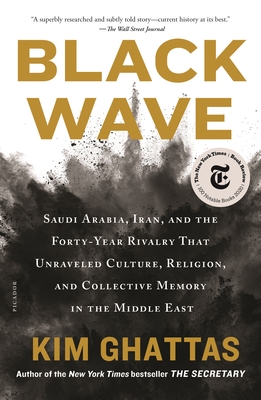Expedite your nonfiction book discovery process with Readara interviews, summaries and recommendations, Broaden your knowledge and gain insights from leading experts and scholars
In-depth, hour-long interviews with notable nonfiction authors, Gain new perspectives and ideas from the writer’s expertise and research, Valuable resource for readers and researchers
Optimize your book discovery process, Four-to eight-page summaries prepared by subject matter experts, Quickly review the book’s central messages and range of content
Books are handpicked covering a wide range of important categories and topics, Selected authors are subject experts, field professionals, or distinguished academics
Our editorial team includes books offering insights, unique views and researched-narratives in categories, Trade shows and book fairs, Book signings and in person author talks,Webinars and online events
Connect with editors and designers,Discover PR & marketing services providers, Source printers and related service providers

Black Wave: Saudi Arabia, Iran, and the Forty-Year Rivalry That Unraveled Culture, Religion, and Collective Memory in the Middle East
History > Middle East - General
- Picador USA
- Paperback
- 9781250789389
- 8.2 X 5.3 X 0.9 inches
- 0.65 pounds
- History > Middle East - General
- (Single Author) Asian American
- English
Readara.com
Book Description
A New York Times Notable Book of 2020
[A] sweeping and authoritative history (The New York Times Book Review), Black Wave is an unprecedented and ambitious examination of how the modern Middle East unraveled and why it started with the pivotal year of 1979.
Kim Ghattas seamlessly weaves together history, geopolitics, and culture to deliver a gripping read of the largely unexplored story of the rivalry between between Saudi Arabia and Iran, born from the sparks of the 1979 Iranian revolution and fueled by American policy.
With vivid story-telling, extensive historical research and on-the-ground reporting, Ghattas dispels accepted truths about a region she calls home. She explores how Sunni Saudi Arabia and Shia Iran, once allies and twin pillars of US strategy in the region, became mortal enemies after 1979. She shows how they used and distorted religion in a competition that went well beyond geopolitics. Feeding intolerance, suppressing cultural expression, and encouraging sectarian violence from Egypt to Pakistan, the war for cultural supremacy led to Iran's fatwa against author Salman Rushdie, the assassination of countless intellectuals, the birth of groups like Hezbollah in Lebanon, the September 11th terrorist attacks, and the rise of ISIS.
Ghattas introduces us to a riveting cast of characters whose lives were upended by the geopolitical drama over four decades: from the Pakistani television anchor who defied her country's dictator, to the Egyptian novelist thrown in jail for indecent writings all the way to the murder of journalist Jamal Khashoggi in the Saudi consulate in Istanbul in 2018. Black Wave is both an intimate and sweeping history of the region and will significantly alter perceptions of the Middle East.
Author Bio
After twenty years as a BBC journalist, it was also time to say goodbye to this great institution. I am now a contributing writer at the Atlantic magazine and a non-resident senior fellow at the Carnegie Endowment for International Peace, shuttling between Beirut and Washington D.C.
I was born and raised in Beirut, on the front lines of the Lebanese civil war. Searching for answers about the chaos around me is what made me want to become a journalist at the age of 13.
I started my journalism career in 1998, as an intern in Beirut at the local English-language newspaper The Daily Star. Within a couple of years, I was reporting for the Dutch newspaper de Volkskrant as well as the Financial Times and the BBC. I spent my time on the road covering the Middle East: reporting from Iraq, Saudi Arabia, Syria, and of course Lebanon. In 2006, my BBC colleagues and I covered the war between Israel and Hezbollah and we won an Emmy for international news coverage.
In 2008, I left my posting in Beirut, the city that made me a journalist, to become the BBC's State Department correspondent based in Washington. For six years, I travelled regularly with Secretary of States: Condoleezza Rice, Hillary Clinton and John Kerry. I've had the honor of being recognized by publications like Monocle for my State Department reporting.
My front row seat to the making of American foreign policy led me to write a book, The Secretary: A Journey with Hillary Clinton from Beirut to the Heart of American Power, which became a New York Times best seller. The book includes personal reflections about being a child in war-torn Lebanon, growing up with questions about America.
My work has been published in The Atlantic, The Daily Beast, Time magazine and The Washington Post. I regularly speak on American television and radio, and at special events, on Middle East issues and American foreign policy.
I serve on the Board of Trustees of the American University of Beirut, my alma mater and a beacon of intellectual engagement in the Middle East. I am also on the board of directors ARIJ, an organisation dedicated to training and supporting investigative journalists in the Arab world.
On this website, you’ll find a small selection of my favorite articles and reports from my two decades years as a journalist, covering the Middle East and American foreign policy. You can also follow me on Twitter.
My other passion is food and cooking. I promised myself that one day I would write about food or open a restaurant.
Source: kimghattas.com
Videos
No Videos
Community reviews
No Community reviews

